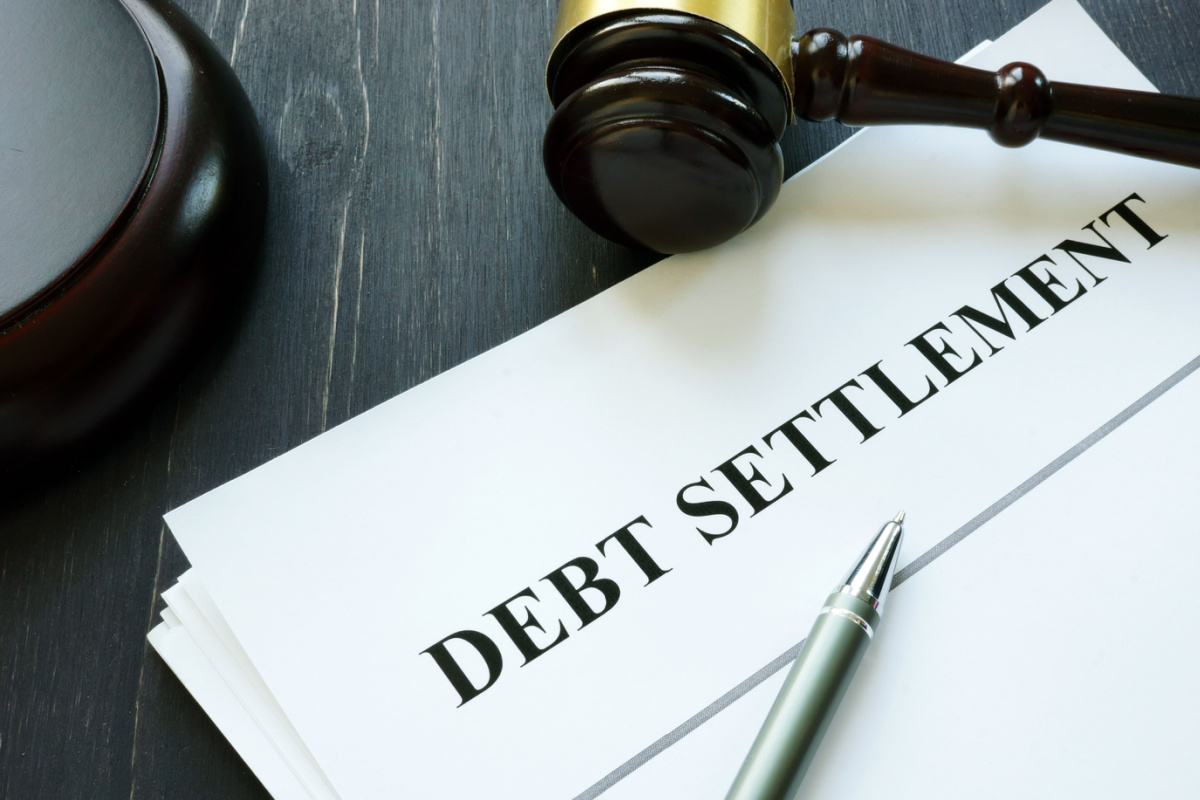




With the total US household totaling over $1.69 trillion, nearly 400,000 Americans filed bankruptcy in 2022. But when faced with mounting debt, bankruptcy is not the only solution. Bankruptcy and debt settlement are two distinct strategies individuals might consider when facing overwhelming debt. Bankruptcy is a legal process where a person or business unable to meet their financial obligations can find relief. In this process, some debts may get erased entirely or create a manageable payment plan under the oversight of a court. On the other hand, debt settlement is a method of negotiation where a debtor, or often a debt settlement company acting on their behalf, negotiates with creditors to pay less than the full amount owed. Though both can offer a pathway out of debt, these come with their own sets of pros and cons, and their impacts on one’s financial future vary significantly.
When facing a mountain of debt, protecting personal assets becomes a significant concern. Here’s where bankruptcy might offer a more substantial safety net than debt settlement. In bankruptcy proceedings, especially under Chapter 13, individuals can often retain their assets, such as a house or car, while they work through a court-approved repayment plan.
On the contrary, debt settlement doesn’t typically provide the same level of protection. In a debt settlement process, there’s no legal barrier preventing creditors from seeking to seize assets if negotiations break down or payments aren’t made on time. Furthermore, the need to accumulate funds for a lump-sum settlement offer can put additional pressure on a debtor’s assets.
Therefore, while both methods have their own merits and drawbacks, bankruptcy might be the better option for individuals concerned about protecting their assets from creditors.
Credit score impacts are significant considerations when weighing bankruptcy versus debt settlement. Bankruptcy often carries a more severe impact. A Chapter 7 bankruptcy can stay on a credit report for ten years, while a Chapter 13 bankruptcy lasts for seven years. This might make future borrowing more difficult or expensive due to higher interest rates.
In contrast, debt settlement may have a lesser impact on your credit score. While it still negatively affects your credit, the effect is typically not as long-lasting as bankruptcy. Once a debt is settled, the credit report will reflect that the debt was paid for less than the originally agreed amount, which may deter future lenders. However, after seven years, the settled debts fall off the credit report, potentially allowing for quicker recovery than bankruptcy.
Debt settlement can seem like an appealing option, but it’s important to be aware of the potential complications of a drawn-out process. Unlike bankruptcy, which offers immediate protection from creditors, debt settlement can take years to complete. During this time, interest and penalties on the outstanding debt continue to accumulate, which could potentially increase the total debt owed.
Furthermore, there’s no guarantee creditors will agree to a settlement, even after long negotiations. Some may even intensify their collection efforts during the negotiation period. This added pressure, coupled with the uncertainty and the potential for increased debt, can make the situation even more stressful.
In comparison, bankruptcy, although it has serious implications, offers a defined path and timeline, potentially making it a more suitable choice for those facing significant financial hardship and needing immediate relief.
One of the advantages bankruptcy holds over debt settlement is its ability to discharge unsecured debts. Unsecured debts are those that aren’t tied to an asset, like credit card debt, medical bills, and personal loans. In a Chapter 7 bankruptcy, these debts can often be eliminated entirely, providing a fresh start.
Debt settlement, on the other hand, involves negotiating with each creditor to accept a reduced amount of the debt. However, there’s no guarantee all creditors will agree to a settlement. Even if they do, the amount forgiven could potentially be less than what might be discharged in bankruptcy.
Therefore, for those with substantial unsecured debt, bankruptcy could provide a more comprehensive solution, effectively erasing these financial obligations and offering a clearer path toward financial recovery.
Debt forgiveness plays distinct roles in both bankruptcy and debt settlement. In a bankruptcy scenario, particularly a Chapter 7 bankruptcy, many types of unsecured debt can be entirely forgiven. This means these debts are legally discharged, and the debtor is no longer obligated to pay them. However, not all debts are dischargeable in bankruptcy. For example, student loans, certain tax debts, and child support are usually not forgiven.
In contrast, debt settlement is centered around the concept of debt forgiveness. The debtor or a debt settlement company negotiates with creditors to forgive a portion of the debt, enabling the debtor to pay a lump sum that is less than the total amount owed. While this may sound appealing, it’s important to remember that not all creditors will agree to a settlement, and the forgiven debt could be considered taxable income.
When a person’s debt far surpasses their ability to pay, bankruptcy can be a viable option. It is a legal procedure that provides a fresh start to those facing severe financial struggles. In a Chapter 7 bankruptcy, many types of unsecured debts can be wiped out completely, allowing individuals to eliminate the burden of insurmountable debt.
In cases where an individual has a steady income, a Chapter 13 bankruptcy may be more suitable. It allows for a reorganization of debts and a payment plan that matches the debtor’s ability to pay. It’s worth noting that this can include reducing the overall amount owed.
While bankruptcy does have significant implications, like affecting your credit score for several years, it can provide immediate relief and a structured path towards financial recovery when debts become unmanageable.

Collection agencies can be a significant source of stress for people grappling with debt. These agencies are known for their persistent attempts to collect on owed debts, sometimes resorting to aggressive tactics. Bankruptcy can offer a way to deal with this issue. When a person files for bankruptcy, an automatic stay is put in place. This stay prevents most collection agencies from making further attempts to collect debts.
The automatic stay not only applies to collection calls and letters, but it also pauses other actions like wage garnishments and lawsuits over debts. Bankruptcy may thus provide a respite from the relentless pressure of collection agencies. Though it has its own set of challenges and consequences, bankruptcy can offer peace of mind and a chance to rebuild financial stability, free from constant collection attempts.
Exploring the complexities of bankruptcy can be daunting. However, by seeking guidance from trusted sources like My Debt Advisors, you can gain a comprehensive understanding of your legal rights during debt collection and the impact of bankruptcy on your credit report. In particular, their Green Bay office offers tailored advice and support, ensuring you’re well-informed about the nuances of your situation. Moreover, it’s essential to know the specific rules surrounding unique circumstances, such as how bankruptcy can affect the discharge of personal injury debts. Empowering yourself with this knowledge can make the process less intimidating and more manageable.
If you are filing for bankruptcy, contact us or call us at 866-696-6432 today for a free consultation.

Learn about bankruptcy protections, types of bankruptcy, how to get started, what to expect, and who to trust. Filing bankruptcy is the ONLY way to completely eliminate debt. If bankruptcy is right for you, it offers powerful protections that cannot be achieved through alternative solutions such as hardship relief, loans, or debt settlement.